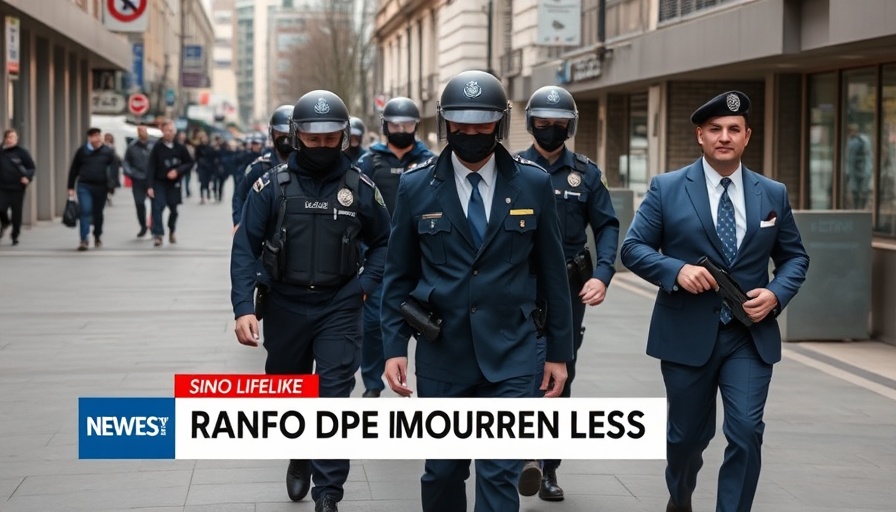
The Rising Tide of Violence and Injustice in Nigeria
The tragic killing of Divisional Police Officer (DPO) Baba Ali in the Renault division encapsulates a deeper, troubling narrative of law enforcement, community relations, and systemic injustice prevalent in Nigeria. This incident, which has resulted in the arrest of 41 suspects, reflects not only the tensions in the community but also the desperate need for reform in the police force—a call echoed by many outraged citizens.
In Rano DPO Killing: 41 Suspects Arrested, tensions run high following the tragic death of a community officer, prompting a deeper analysis on the implications for police-community relations.
A Snapshot of Community Outrage
As the community reels from the shocking death of Officer Ali, the rapid mobilization of armored police vehicles and heavily armed forces serves to amplify fears rather than alleviate them. Many community members voice their concerns that police actions are perceived as intimidation rather than protection, creating an environment ripe for further disorder. Reports describe how the police’s efforts to secure the area have led to the oppression of local youth, further straining the fabric of trust between citizens and law enforcement agents.
Investigations: A Deeper Look into Officer Ali's History
Insight into Officer Ali’s previous engagements reveals serious allegations of ruthless conduct during his time in service. Eyewitness accounts point to a history of abuses, including allegations of torturing suspects before they received due process. This background raises essential questions on whether his death could be a case of poetic justice—a form of nemesis for his reported tyranny in other states like Kaduna and Bauchi. The community has voiced strong emotions, framing Ali as a divisive figure rather than a protector.
The Consequences of Mass Arrests
The arrest of 41 suspects, a number that quickly escalated from an initial count of 27, emphasizes a heavy-handed approach by the police. Critics argue that such measures not only fail to account for actual culpability but also risk alienating innocent members of the community, particularly youth who are now viewed with suspicion. The assertion that the police will maintain their presence for an extended period, causing continued anxiety and unrest, highlights the potential for retaliation and increased violence if community grievances are left unaddressed.
Implications on Governance and Law Enforcement
While the community seeks justice following Officer Ali’s death, the situation is symptomatic of a broader crisis where law enforcement operates above the citizenry's expectations of fairness and accountability. The actions of the police must be scrutinized as they risk perpetuating cycles of violence rather than resolving them. This toxic relationship undermines the foundational principles of policing, which are meant to protect and serve the populace.
The Need for Systemic Change
The killing of Baba Ali and the harsh response by the police serve as a potent reminder that with every action, a reaction follows. Restructuring how law enforcement interacts with communities is critical. Experts recommend implementing community policing strategies that engage citizens, rather than isolating and intimidating them. Such initiatives could help rebuild trust and encourage cooperative efforts to enhance community safety.
Conclusion: A Call for Justice and Reform
This unfolding narrative illustrates the challenges facing Nigeria's law enforcement and the urgent need for reform. As citizens demand answers, transparency in investigations and police conduct must be a priority. Without addressing the root causes of discontent and fostering accountable governance, Nigeria risks further descent into chaos. The country stands at a crossroads, with the opportunity to redefine the relationship between police forces and the communities they serve, ensuring justice, safety, and dignity for all its citizens.
 Add Row
Add Row  Add
Add 


 Add Row
Add Row  Add
Add 

Write A Comment